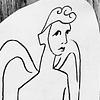You need to sign in or sign up before continuing.
Take a photo of a barcode or cover
storytelling of a kind that seems rare in contemporary writing these days. i appreciated the writing, the story was whatever.
I wasn't sure if this novella was meant to be funny, but I certainly laughed out loud at many parts, especially the ribald sections - and there are many. It's an odd little book, nicely absurd (sometimes reminding me of a milder Brautigan), with lots of little vignettes in which the characters are only slightly linked by the environmental destruction of a local pond. It seemed much more dated than 1982 however - especially with its depiction of women.
Recommended to read in one single swallow.
Recommended to read in one single swallow.
A fascinating little book. Cheever's story explores many places, and drifts between themes but always seems to settle somewhere life-affirming. Whether exploring our heroes sexual escapades of the efforts required to decontaminate a pond, Cheever crafts a community of characters that are able to heal (both themselves and the world around them) through their relationships, in contrast to a world that is increasingly more isolated and polluted.
A snippet of life that keeps some rather unfortunate attitudes throughout its text that limits its ability to be totally wonderful. I may write more here, probably not, but I'm at work and I'm tired.
A snippet of life that keeps some rather unfortunate attitudes throughout its text that limits its ability to be totally wonderful. I may write more here, probably not, but I'm at work and I'm tired.
"La búsqueda de cualquier cosa, lo sabía bien, puede ser engañosa. Cuántas veces había buscado etiquetas, precios y marcas en aquel lugar que era verdaderamente una encrucijada de su tiempo. Siempre que no podía encontrar lo que iba buscando, le parecía oír un coro de ancianas de su familia preguntando por su gafas o sus llaves, y lamentando la pérdida de números de teléfono, direcciones y nombres. Oh, ¿dónde estaba la salsa teriyaki? Le preocupaba la idea de que hubiesen dejado de traerla o de que se hubieran agotado las existencias."
Yes, certain ungenerous eyes could view this as an Old Man Yells At Cloud kind of book - but has any old man ever yelled with such loopy elegance as John Cheever? 20th century US lit was lucky to have him, for no one else has ever written the kind of strange and beautiful sentences he wrote. The older I get, the more I appreciate his hale and hearty vigor for the unexpected beneficences that provide savor and spiritual sustenance to life in this shabby ruined country, like ice skating on a bright winter day when the brisk air enlivens your lungs or watching an evening train pull into the station in the first minutes just past sundown. Revisiting this book 10 years after first reading it, I was reminded of the line from Grand Budapest Hotel where the aged Zero Moustafa says of M. Gustave: "To be frank, I think his world had vanished long before he ever entered it. But I will say, he certainly sustained the illusion with a marvelous grace." That's Cheever to a T, baby. That's my homeboy.
I mean it was nice toward the end, but only toward the end…
I liked the romantic love mixed with the love of nature. The protagonist seems to enjoy love in general. But because Cheever tried to write about both, it seems to be missing depth in both parts.
It could have been better.
I liked the romantic love mixed with the love of nature. The protagonist seems to enjoy love in general. But because Cheever tried to write about both, it seems to be missing depth in both parts.
It could have been better.
funny
lighthearted
medium-paced
Plot or Character Driven:
Character
Strong character development:
No
Loveable characters:
Yes
Diverse cast of characters:
No
Flaws of characters a main focus:
Complicated
funny
hopeful
lighthearted
fast-paced
Plot or Character Driven:
Character
Strong character development:
Complicated
Loveable characters:
Yes
Diverse cast of characters:
No
Flaws of characters a main focus:
Yes
I'd be really intrigued to see this analyzed in depth alongside White Noise. Both came out around the same time and engage with parallel stories of environmental and suburban/social degradation. The major difference being one of age and artistic positioning: Delillo as younger hig postmodernist, Cheever as an elder end-of-era modernist. The outlooks differ in the ultimate optimism and the acceptance of the possibility of human camaraderie, despite the perils of the late 20th century and the foibles of mankind (Cheever), whereas Dellilo's America is far too absorbed in signs and projections and irreality to ever suggest a redeemable America.
This book felt a bit too disjointed - Cheever really is a short story writer at heart - but it was very funny and the prose was often gorgeous.
This book felt a bit too disjointed - Cheever really is a short story writer at heart - but it was very funny and the prose was often gorgeous.
medium-paced





